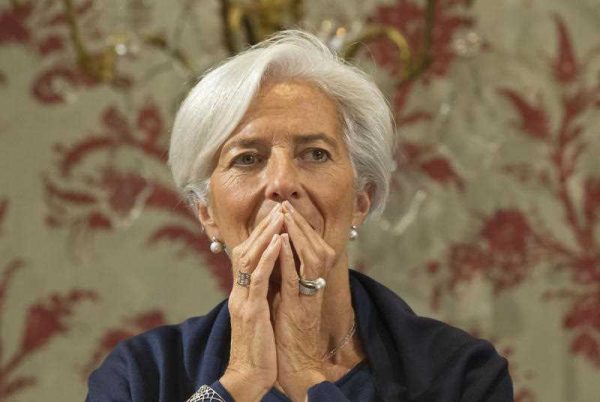Reforming the safety net would benefit the Asian region provided the IMF takes a holistic approach that addresses the root causes of this fragmentation. This requires a focus on increased and more permanent funding for the IMF, better tailored financing facilities to meet the needs of Asian economies, a new phase of reforms to give Asian economies a greater voice in the IMF, and better cooperation between the IMF and regional financing arrangements.
The global financial safety net needs reform. It is too small, too fragmented and too unresponsive. It is too small because the size of the safety net has not kept up with the 25-fold increase in global capital flows from 1980 to 2007, or the US$25 trillion increase in public debt among OECD economies since 2007. It is too fragmented because of the significant growth in regional, bilateral and domestic arrangements that are increasingly decoupled from the IMF. And it is too unresponsive because this fragmentation has reduced the safety net’s speed, flexibility, coverage and consistency in responding to crises.
These challenges are more apparent in Asia than anywhere else. While it is large compared to other regions, the safety net in Asia is highly fragmented and patchy in its coverage. As of 2016, it consists of the IMF, the Chiang Mai Initiative Multilateralisation (CMIM), the BRICS currency reserve pool, bilateral currency swap lines, domestic foreign exchange reserves and, potentially, the World Bank and the Asian Development Bank — which provided liquidity support during the 1997 Asian financial crisis.
This fragmentation has increased the cost and reduced the efficiency of the safety net in Asia. Issuing high-yielding local currency debt to purchase foreign exchange reserves is a costly exercise — which, according to the Bank of England, results in an annual cost to emerging economies of around 0.5 per cent of GDP.
Bilateral swaps, while more flexible than institutional arrangements, are highly selective in terms of which countries receive them, raise moral hazard problems and are less effective when crises afflict multiple countries in the region.
Regional arrangements like the CMIM make imposing conditionality on neighbouring countries politically difficult. Their resource base is far narrower than global institutions, the cost of raising capital is greater, moral hazard is more perverse and their surveillance is less effective.
Addressing these challenges in Asia means focusing on the root causes of this fragmentation. One reason for the safety net’s fragmentation is the demand among Asian economies for instruments (like bilateral swaps), which have greater flexibility and speed in responding to crises. The IMF can help satisfy these demands and reduce reliance on domestic and bilateral alternatives by increasing the availability of precautionary financing instruments.
These allow countries to access IMF financing before a crisis has occurred and on more flexible terms than would otherwise be the case. Lagarde flagged this as an option in her recent speech. Strengthening precautionary financing instruments would build on the IMF’s creation of the Precautionary and Liquidity Line in 2011.
Fragmentation is also the product of emerging economies wanting a greater say in how the safety net is governed. The 2010 IMF quota reforms transferred 6 per cent of voting power to the emerging market economies. But these economies remain grossly underrepresented in the IMF relative to their share of global GDP.
The IMF needs to discuss the next stage of quota reform and complete other long-standing pledges. These include freeing-up additional seats on the IMF Executive Board for the emerging market and developing economies, completing the 15th General Review of Quotas and reviewing the formula through which country quotas are determined.
Finally, fragmentation is also the consequence of the safety net being too small. In Europe, for example, the Greek bailout alone would have exhausted most of the IMF’s forward commitment capacity, necessitating the creation of the European Financial Stability Fund. Increased resources for the safety net should be housed within the IMF and these resources need to be permanent, rather than temporary. In 2016 and 2017, a third of the IMF’s temporary bilateral funding is set to expire. These loans should be renewed to close this short-term funding gap, with a view to rolling these funds into permanent IMF quota increases in the medium-term.
But the regional and bilateral arrangements should not be discounted. They play an important and complementary role to the IMF and are not going away anytime soon. The IMF needs to look at how it can better cooperate with these arrangements by setting-up guidelines before a crisis erupts to help steer how that cooperation would take place in the event of a crisis. This is critical to the safety net’s ability to respond quickly, flexibily and consistently to crises and is key to promoting market confidence in the safety net.
While many of these measures are politically difficult, China’s presidency of the G20 this year offers an opportunity to take some incremental and pragmatic first steps. The IMF is due to report to G20 finance ministers in the coming months on the adequacy of the safety net. China must seize this opportunity to begin a conversation on these issues.
Adam Triggs is a PhD candidate at the Crawford School of Public Policy, The Australian National University.


How are you supposed to have reforms when you have American corporations aided and abetted by the US government doing everything to make sure nations like Argentina, Greece, various African nations are stripped of their sovereign rights when it comes to running their own countries?
These corporations use the IMF to force these nations to take out loans with unfavorable conditions; whereby, if the nation defaults, the IMF along with the corporations can force the nations to cut back on education, social services, etc., in order to pay off the loans.